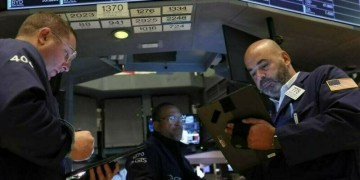
© Reuters Fed Rate-Increase Path to Be Data-Dependent, Measured, Daly Says
(Bloomberg) — Sign up for the New Economy Daily newsletter, follow us @economics and subscribe to our podcast.
San Francisco Federal Reserve President Mary Daly said it’s paramount for the central bank to be measured and data-dependent as it starts lifting U.S. interest rates to ensure stability.
“Abrupt and aggressive action can actually have a destabilizing effect on the very growth and price stability we’re trying to achieve,” Daly said on CBS’s “Face the Nation” on Sunday. “So what I favor is moving in March, and then watching, measuring, being very careful about what we see ahead of us and then taking the next interest rate increase when it seems the best place to do that. And that could be in the next meeting or it could be a meeting away.”
Investors have raised bets on the pace and size of rate increases since the January meeting of the Federal Open Market Committee after data out Thursday showed January consumer inflation accelerating at the hottest pace in four decades.
In the wake of the CPI report, banks including Citigroup Inc (NYSE:C). and Deutsche Bank AG (NYSE:DB) now see a 50 basis-point increase at the March meeting. However, Fed centrists such as Daly appear skeptical of a half-point hike, and suggest there is little need to start a cycle of increases with an aggressive move.
St. Louis Fed President James Bullard — who votes on rates this year — said in an interview Thursday that he favors three increases by July, with one of them being a half-point move.
Daly said “it’s too early to call” the number of interest-rate hikes this year.
“The most important thing is to be measured in our pace and importantly, data-dependent,” Daly said. “What every American wants to know and deserves to hear is that we’re on this, and we’re going to take those data in and get the accommodation right-sized for the economy.
House Speaker Nancy Pelosi said Congress’s efforts to stem the effects of the pandemic have resulted in more jobs, which in turn has contributed to inflation.
The passage of the so-called COMPETES Act — an expansive bill that would invest tens of billions in the U.S. tech sector — on Feb. 4 is “a giant step forward” in addressing accelerating price increases, she said on ABC’s “This Week.”
“What that does is addresses the supply-chain shortages that we have and therefore will decrease inflation,” she said.
The final version of H.R. 4521 — which includes $45 billion over six years for a new supply-chains fund and $52 billion over five years to support semiconductor production — still has to be negotiated with the Senate and could be months away.
West Virginia Democratic Senator Joe Manchin said on Twitter (NYSE:TWTR) Sunday the Fed needs to “stop pussyfooting around” and “tackle inflation head-on,” renewing his call for the central bank to act against the fastest pace of price increases since the early 1980s.
©2022 Bloomberg L.P.
Source: Investing.com






























